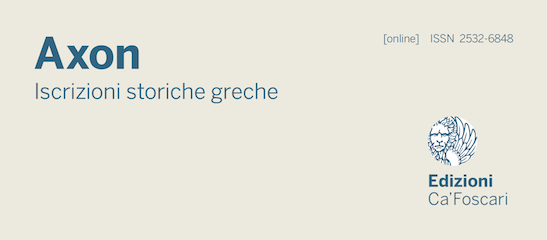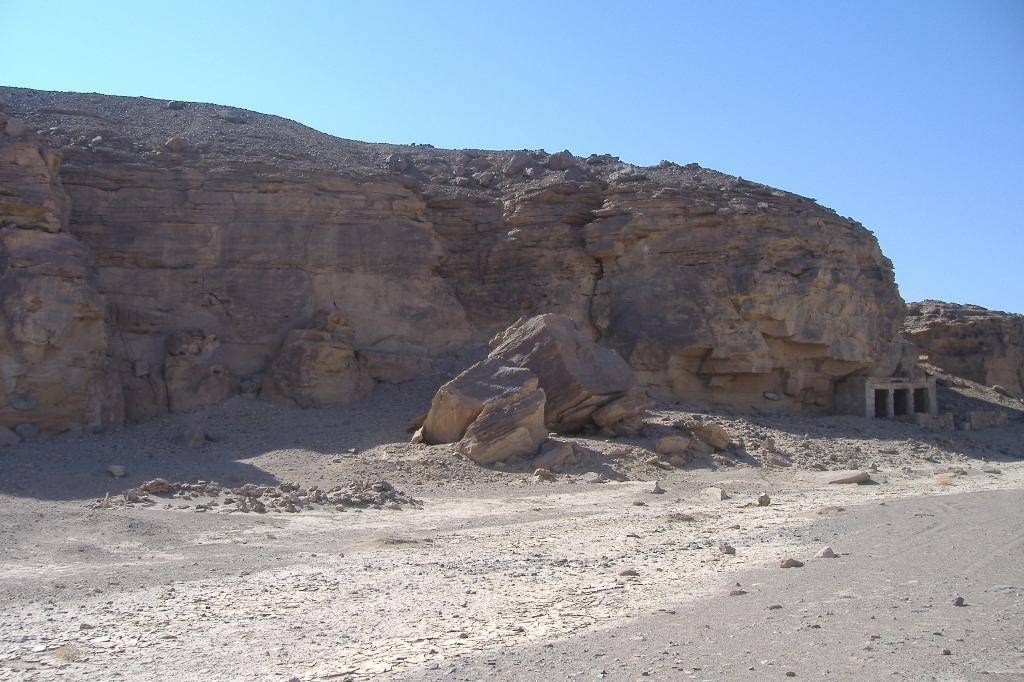


| ID AXON | 219 | ||||||||||||||||||||||||||
| Autore/i | Stefano Struffolino | ||||||||||||||||||||||||||
| Data | 1-9-2020 | ||||||||||||||||||||||||||
| Titolo | Due ebrei benedicono Dio presso un tempio di Pan | ||||||||||||||||||||||||||
| Riassunto (massimo 650 caratteri spazi inclusi) | Sulla parete rocciosa presso il tempio di Pan ad al-Kanāys (Egitto), si trovano iscritti due atti devozionali a Dio firmati da individui dal nome greco che si definiscono Ἰουδαῖοι. La loro presenza in un luogo di culto pagano può essere interpretata come pratica epigrafica comune e condivisa, ispirata alla necessità di dedicare un perpetuo ringraziamento per la protezione ottenuta durante il viaggio attraverso il deserto. Questi graffiti possono essere visti come esempi di integrazione ed ellenizzazione pur nel mantenimento della propria identità religiosa. La datazione può verosimilmente porsi nella seconda parte del periodo tolemaico . | ||||||||||||||||||||||||||
| Per il commento vai alla rivista | |||||||||||||||||||||||||||
| Supporto | Muro, parete rocciosa; pietra. Integro. Due graffiti sulla parete di roccia a ovest del tempio ipogeo, inquadrati ciascuno da una cornice anch'essa graffita. | ||||||||||||||||||||||||||
| Cronologia | II secolo (2ª metà) - I secolo a.C. (2ª metà). | ||||||||||||||||||||||||||
| Tipologia | Proscìnema (?). | ||||||||||||||||||||||||||
| Ritrovamento | |||||||||||||||||||||||||||
| Luogo di conservazione | Egitto, al-Kanays, in situ, nr. inv. 144 (Testo a), 136 (Testo a). | ||||||||||||||||||||||||||
| Scrittura |
| ||||||||||||||||||||||||||
| Lemma | Letronne 1845, nrr. IV, V [Letronne 1848, nrr. CXCVII, CXCVIII]; Lepsius 1849-1859, Abt. VI, Band XII, tav. 81, Gr., figg. 136, 144; CIG III nr. 4838c, Add. 1217; Schwarz 1896, nrr. 10, 28; OGIS I nrr. 73, 74; Oehler 1909, 452 nr. 231 [Fuchs 1924, 129; SB V nr. 8383 a-b]; CIJud II nrr. 1537, 1538; CPJ III nrr. 1537, 1538; I.Kanaïs nrr. 34, 42, tav. 34, figg. 1, 2; tav. 37, fig. 1; tav. 38, fig. 2; Guarducci, Epigrafia greca III 205-206. Cfr. Bingen 1973; I.Jud. Egypt nrr. 121, 122; BE 1973, 530; SEG XLIX, 2202; SEG LXIII, 1665; SEG LXIV, 1944. | ||||||||||||||||||||||||||
| Testo |
| ||||||||||||||||||||||||||
| Apparato | Testo a: 1 Εὐλόγει Dittenberger, Tcherikover-Fuks-Stern-Lewis, Bernand, Horbury-Noy, ad eccezione del Dittenberger, gli editori che optano per questa lezione inseriscono anche un punto alla fine della linea. Testo b: 1 εὐλογίᾳ ed. pr., Letronne || 2 Θευόδοτος ed. pr., Letronne, Schwarz, Frey, Tcherikover-Fuks-Stern-Lewis, Bernand, Guarducci, (pur avendo segnalato come edizione di riferimento quella di M. Guarducci, per questo testo e per questa specifica lezione ce ne si discosta per accogliere la proposta di espunzione del primo omicron, segnalandola come in JIGRE nr. 121) | Θεόδοτος Boeckh-Franz | Θεύδοτος Dittenberger, Oehler, Fuchs, Preisigke-Bilabel-Kiessling-Rupprecht, Bingen, (tutti senza esplicito segno di espunzione) || 3-4 [Τρωγ]λο[δ]υ[τῶν] ed. pr., Letronne | [Τρωγ]λο[δ]υ[τικῆς Boeckh-Franz | Πελουσ[ίου Schwarz. | ||||||||||||||||||||||||||
| Traduzione |
| ||||||||||||||||||||||||||
| Bibliografia | ANRW II 20.2 = Kant, L.H. (1987). «Jewish Inscriptions in Greek and Latin». Temporini, H.; Haase, W. (eds.), Aufstieg und Niedergang der römischen Welt. Geschichte und Kultur Roms im Spiegel der neueren Forschung. II. Principat. 20.2. Religion (Hellenistiches Judentum in römischer Zeit, ausgenommen Philon und Josephus) . Berlin; New York, 671-713. CIG III = Boeckh, A.; Franz, J. (edd.) (1853). Corpus Inscriptionum Graecarum III. Berlin (nrr. 3810-6816). CIJud II = Frey, J.-B. (ed.) (1952). Corpus Inscriptionum Iudaicarum II. Roma, Paris. CPJ III = Tcherikover, V.A.; Fuks, A.; Stern, M; Lewis, D.M. (edd.) (1964). Corpus Papyrorum Judaicarum III. Cambridge Mass. Guarducci, Epigrafia greca III = Guarducci, M. (a cura di) (1978). Epigrafia Greca III. Epigrafi di carattere privato. Roma. I.Jud. Egypt = Horbury, W.; Noy, D. (eds.) (1992). Jewish Inscriptions of Graeco-Roman Egypt, with an index of the Jewish inscriptions of Cyrenaica. Cambridge. I.Kanaïs = Bernand, A. (éd.) (1972). Le Paneion d'el-Kanaïs. Leiden. OGIS I = Dittenberger, W. (ed.) (1903). Orientis Graeci Inscriptiones Selectae I. Ausg. Leipzig. Robert, Hellenica XI-XII = Robert, L. (éd.) (1960). Hellenica: Recueil d'épigraphie, de numismatique et d'antiquités grecques XI-XII. Paris. SB = Preisigke, F.; Bilabel, F.; Kiessling, E.; Rupprecht, H.A. (Hrsgg.) (1915→). Sammelbuch griechischer Urkunden aus Ägypten. Strassburg. Adams, C.E.P. (2007). «Travel and the Perception of Space in the Eastern Desert of Egypt». Rathmann, M. (Hrsg), Wahrnehmung und Erfassung geographischer Räume in der Antike . Mainz am Rhein, 211-20. Ambaglio, D. (1987). «Tensioni etniche e sociali nella ‘chora’ tolemaica». Virgilio, B. (a cura di), Studi Ellenistici, II. Pisa, 129-62. Aufrère, S. (1998). «Religious Prospects of the Mine in the Eastern Desert in Ptolemaic and Roman Times». Kaper, O.E. (ed.), Life on the Fringe: Living in the Southern Egyptian Deserts during the Romand and Early-Byzantine Periods. Leiden., 5-20. Belfiore, S. (a cura di) (2004). Il periplo del mare eritreo di anonimo del I sec. d.C. e altri testi sul commercio tra Roma e l’Oriente attraverso l’Oceano Indiano e la via della seta. Roma Memorie della Società Geografica Italiana. Beyer, H.W. (1967). s.v. «εὐλογέω, εὐλογία». Kittel, G.; Friedrich, G. (a cura di), Grande lessico del Nuovo Testamento, vol. III. Brescia, coll. 1149-1180. ediz. italiana a cura di F. Montagnini, G. Scarpat, O. Soffritti del Theologisches Worterbuch zum Neuen Testament, 1: A-G, Stuttgart. Bingen, J. (1973). «André Bernand, Le Paneion d'El-Kanaïs; les inscriptions grecques. Leyde, Brill, 1972 [compte rendu]». CE, 48, 195-8. Breccia, E. (1935). s.v. «Proscinema». Enciclopedia Italiana, vol. 28. http://www.treccani.it/enciclopedia/proscinema_%28Enciclopedia-Italiana%29/. Caillaud, F.; Jomard, E.-F. (éds.) (1891). Voyage à l'Oasis de Thèbes et dans les déserts situés à l'Orient et à l'Occident de la Thébaïde fait pendant les années 1815, 1816, 1817 et 1818. Paris https://gallica.bnf.fr/ark:/12148/bpt6k106154c. Calabi, F. (a cura di) (1995). Lettera di Aristea a Filocrate. Milano. Casson, L. (ed.) (1989). The Periplus Maris Erythraei. Princeton. De Romanis, F. (1992). «Viaggi ed esplorazioni oltre i confini dell’impero fra l’età di Plinio e quella di Tolomeo». Optima Hereditas. Sapienza giuridica romana e conoscenza dell’ecumene. Milano, 223-74. Antica madre. Collana di studi sull'Italia antica. De Romanis, F.; Tchernia, A. (eds.) (1997). Crossings: Early Mediterranean contacts with India. New Delhi. Faucher, T. (2018). «Ptolemaic Gold: the Exploitation of Gold in the Eastern Desert». Brun, J.P.; Faucher, T.; Sidebotham, S.E.; Redon, B. (eds.), The Eastern Desert of Egypt during the Greco-Roman Period: Archaeological Reports. Paris https://books.openedition.org/cdf/5241. Feldman, L.H. (1960). «The Orthodoxy of the Jews in Hellenistic Egypt». Jewish Social Studies, 22,4, 215-37. Fraser, P.M. (1972). Ptolemaic Alexandria. Oxford. Fuchs, L. (a cura di) (1924). Die Juden Aegyptens in ptolemäischer und römischer Zeit. Wien. Gardner Wilkinson, J. (ed.) (1835). Topography of Thebes, and General View of Egypt. Being a Short Account of the Principal Objects Worthy of Notice in the Valley of the Nile, to the Second Cataract and Wadee Samneh, with the Fyoom, Oases, and the Eastern Desert, from Sooez to Berenice; with Remarks on the Manners and Customs of the Ancient Egyptians and the Productions of the Country. London. Gauthier, H. (1917). «Le temple de l’Ouâdi Mîyah (El Knaïs)». BIFAO, 17, 1-38 . https://www.ifao.egnet.net/bifao/017/01/. Geraci, G. (1971). «Ricerche sul Proskynema». Aegyptus, 51, 3-211. Geraci, G. (1976). «A. Bernand, Le Paneion d'El-Kanaïs: les inscriptions grecques, Leiden 1972 [recensione]». Aegyptus, 56, 347-353. Hengel, M. (1990). «The interpenetration of Judaism and Hellenism in the pre-Maccabean period». Davies, W.D.; Finkelstein, L. (eds.), The Cambridge History of Judaism II. The Hellenistic Age. Cambridge, 167-228. Kasher, A. (ed.) (1985). The Jews in Hellenistic and Roman Egypt; the Struggle for Equal Rights. Tübingen. Kasher, A. (1992). «The Civic Status of the Jews in Ptolemaic Egypt». Bidle, P.; Engberg-Pedersen, T.; Hannestad, L.; Zahle, J. (eds.), Ethnicity in Hellenistic Egypt. Aarhus, 100-21. Kraemer, R.S. (1989). «On the Meaning of the term "Jew" in Greco-Roman Inscriptions». HThR, 82/1 , 35-53. Launey, M. (éd.) (1949-1950). Recherches sur les armées hellénistiques, I-II. Paris. Lepsius, C.R. (Hrsg) (1849-1859). Denkmäler aus Aegypten und Aethiopien nach den Zeichnungen der von Seiner Majestät dem Könige von Preussen Friedrich Wilhelm IV nach diesen Laendern gesendeten und in den Jahren 1842 - 1845 ausgeführten wissenschaftlichen Expedition. Berlin http://edoc3.bibliothek.uni-halle.de/lepsius/start.html. Letronne, J.A. (1845). «Cinq inscriptions grecques recueillies dans le désert a l'orient d'Apollinopolis Magna en Égypte». RPh, I/4, 297-306. Letronne, J.-A. (éd.) (1848). Recueil des inscriptions grecques et latines de l'Égypte, étudiées dans leur rapport avec l'histoire politique, l'administration intérieure, les institutions civiles et religieuses de ce pays, depuis la conquête d'Alexandre jusqu'à celle des Arabes II. Paris. L’Hôte, N. (1841). «Lettres sur l’Égypte en 1841». RDM, 4, 27, 136-51. https://fr.wikisource.org/wiki/Lettres_sur_l%E2%80%99%C3%89gypte_en_1841. Lichtheim, M. (ed.) (1976). Ancient Egyptian Literature. A Book of Readings, vol. II. Berkeley. Mairs, R. (2010). «Egyptian ‘Inscriptions’ and Greek ‘Graffiti’ at El Kanais in the Egyptian Eastern Desert». Baird, J.; Taylor, C. (eds.), Ancient Graffiti in Context. London, 153-64. Mélèze-Modrzejewski, J. (éd.) (1991). Les juifs d’Égypte de Ramsès II à Hadrien. Paris. Oehler, J. (1909). «Epigraphische Beiträge zur Geschichte des Judentums». MGJ, 53, 7/8, 443-52. https://www.jstor.org/stable/i23079798. Pirelli, R. (2017). «L'egiziano Min e il greco Pan nel Deserto Orientale egiziano». Gallo, L.; Genito, B. (a cura di), «Grecità di frontiera». Frontiere geografiche e culturali nell’evidenza storica e archeologica . Alessandria., 191-207. Atti del Convegno Internazionale, Università degli Studi di Napoli "L'Orientale", Napoli, 5-6 giugno 2014. Porter, B.; Moss, R.L.B.; Burney, E.W. (eds.) (1952). Topographical Bibliography of Ancient Egyptian Hieroglyphic Texts, Reliefs and Paintings. VII. Nubia, the Deserts, and Outside Egypt. Oxford 2nd ed. 1962. http://www.griffith.ox.ac.uk/topbib.HTML. Reade, J. (ed.) (1996). The Indian Ocean in antiquity. London, New York. Redon, B. (2018). «The Control of the Eastern Desert by the Ptolemies: New Archaeological Data». Brun, J.P.; Faucher, T.; Sidebotham, S.E.; Redon, B. (ed.), The Eastern Desert of Egypt during the Greco-Roman Period: Archaeological Reports. Paris https://books.openedition.org/cdf/5249. Schott, S. (Hrsg) (1961). Kanais. Der Tempel Sethos I. im Wâdi Mia. Göttingen Nachrichten der Akademie der Wissenschaften in Göttingen 1, Philologisch-historische Klasse. Schürer, E. (Hrsg) (1898). Geschichte des judischen Volkes im Zeitalter Jesu Christi, Bd. III, Das judenthum in der zerstreuung und die judische literatur. Ausg. Leipzig. Schwarz, W. (1896). «Die Inschriften des Wüstentempels von Redesiye». Fleckeisen, A. (Hrsg), Jahrbücher für classische Philologie 66, 153. Ausg. Leipzig, 145-70. https://archive.org/details/neuejahrbcherfr25goog/page/n6/mode/2up. Sethe, K.. s.v. «Berenike 5». RE III.1, coll. 280-281. https://de.wikisource.org/wiki/RE:Berenike_5. Sidebotham, S.E. (ed.) (2011). Berenike and the Ancient Maritime Spice Route. Berkeley; Los Angeles; London. Sidebotham, S.E. (2018). «Overview of Fieldwork at Berenike 1994-2015». Faucher, T.; Redon, B.; Sidebotham, S.E.; Brun, J.P. (eds.), The Eastern Desert of Egypt during the Greco-Roman Period: Archaeological Reports. Paris https://books.openedition.org/cdf/5250. Sidebotham, S.E.; Hense, M.; Nouwens, H.M. (eds.) (2008). The Red Land. The Illustrated Archaeology of Egypt's Eastern Desert . Cairo, New York. Stern, K.B. (2013). «Vandals or Pilgrims? Jews, Travel Culture, and Devotional Practice in the Pan Temple of Egyptian El-Kanais». Olyan, S.M.; Wasserman, E.; Ullucci, D.C.; Johnson Hodge, C. (eds.), "The One Who Sows Bountifully". Essays in Honor of Stanley K. Stowers. Atlanta, 177-88. Brown Judaic Studies. Struffolino, S. (2010). «La poetica del naufragio nell'epigrafia sepolcrale greca». Inglese, A. (a cura di), EPIGRAMMATA. Iscrizioni greche e comunicazione letteraria. In ricordo di Giancarlo Susini = Atti del Convegno di Roma (Roma 1-2 ottobre 2009). Roma, 345-75. Tcherikover, V.A. (ed.) (1959). Hellenistic Civilization and the Jews. Philadelphia. Troiani, L. (1987). «Il libro di Aristea e il giudaismo ellenistico (Premesse per un'interpretazione)». Virgilio, B. (a cura di), Studi Ellenistici, II. Pisa, 31-61. Wernicke, K. (1902). s.v. «Pan». Roscher, H.W. (Hrsg), Ausführliches Lexikon der griechischen und römischen Mythologie, III.1, Leipzig, coll.1347-1481. ristampa: Hildesheim-New York, Olms, 1978. Wilkinson, T. (a cura di) (2012). L’antico Egitto. Storia di un impero millenario. Torino traduz. italiana dell'orig. The rise and fall of ancient Egypt, London, Berlin, New York, Bloomsbury, 2010. | ||||||||||||||||||||||||||
| Immagini |
| ||||||||||||||||||||||||||
| Collegamenti |
| ||||||||||||||||||||||||||
Alcuni browser (in particolare Chrome e versioni molto recenti di Firefox) non rendono correttamente un gruppo di caratteri presenti nel testo di alcune iscrizioni, per lo più arcaiche. I caratteri che possono presentare il problema sono riportati nella sottostante tabella, in cui si può immediatamente verificare il comportamento del browser in uso. Nel caso sfavorevole, infatti, nella seconda riga al posto della lettera apparirà unl'icona sempre uguale a significare l'incapacità di rappresentarla:

|

|

|

|

|

|

|

|

|

|
| | | | | | | | | | |
Le soluzioni che vi proponiamo sono le seguenti:
- impiegare un browser che non presenti il problema (suggeriamo ad esempio IExplorer 11 o successivi per Windows; Safari per Mac);
-
installare nel vostro computer il font Cardo di David Perry. A tale scopo è necessario:
- scaricare il font Cardo da qui;
- installarlo nel vostro computer;
- spuntare la casella sottostante (la scelta sarà memorizzata per le sessioni successive).




 alpha;
alpha;
 alpha.
alpha.  theta;
theta;
 theta.
theta. 